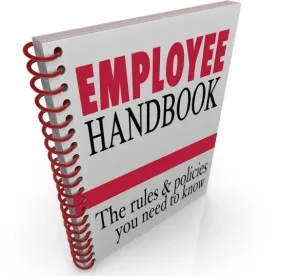In this episode of The Proskauer Brief, Kate Napalkova, special employee benefits and executive compensation counsel, and associate Oleg Zakatov discuss potential pitfalls that lurk in employment agreements and other employee compensation arrangements. Specifically, they will focus on key contractual provisions that employers should incorporate into any document that includes a confidentiality covenant. Employers should be sure to tune in to see why involving your in-house team and outside executive compensation and employment counsel to regularly audit employment agreements, employee handbooks, independent confidentiality and IP assignment agreements, and other company policies is always a good idea.
Oleg Zakatov: Hello and welcome to the Proskauer Benefits Brief: Legal Insights in Employee Benefits and Executive Compensation. I’m Oleg Zakatov, an associate in Proskauer’s New York office, and I’m joined today by Kate Napalkova, special counsel in Proskauer’s Los Angeles office. We’ll be doing a series of podcasts discussing potential pitfalls that lurk in employee agreements and other executive compensation arrangements. For today’s episode, we’ll focus on key contractual provisions that employers should be sure are incorporated into any documents that include a confidentiality covenant. Kate, to start, can you tell us a bit about what confidentially covenants are?
Kate Napalkova: The confidentiality covenants are contractual provisions. They can be found in individual employment or in independent contractor agreements, but they can also often appear in other documents. Equity plans, employee handbooks, standalone confidentiality and IP assignment agreements, company policies and partnership are similar agreements. Confidentiality provisions generally prohibit employees during the term of their employment, and often at all times after termination, from using an employer’s confidential information outside of the scope of employment, subject to limited exceptions. While that seems fairly straightforward, the scope of the covenant and the exceptions to the covenant are where things can get really interesting.
Oleg Zakatov: How So?
Kate Napalkova: Well, in setting the scope of a confidentially covenant an employer will often want to define that scope as broadly as possible to get the most protection that they can with respect to all types of confidential or proprietary information. An employee, on the other hand, they’ll want to avoid a foot fault or avoid be placed in an impossible situation. For example, if the employee’s required to disclose information under subpoena or court order, they’re going to want the flexibility to do that without breaching their contract with their employer. That’s an example of a very typical carve-out to a confidentiality covenant. In addition to employers and employees, the government has also recently become interested in confidentiality covenants. The government comes at this from a couple of different perspectives. On the one hand, the government has made it very clear that it has an interest in helping employers protect their trade secrets. That’s good for business. This has been codified by the Defend Trade Secrets Act or DTSA.
On the other hand, from an enforcement prospective, the government also sees value in making sure employees will openly approach various government agencies if and when they become aware of corporate malfeasance. To make that abundantly clear, the government has adopted statutes and rules that allow employees in certain circumstances to reveal purported confidential information or trade secrets in the course of making reports to the government. We’ll discuss Rule 21F-17 under the Securities Exchange Act of 1934 with respect to those points.
Oleg Zakatov: Why these statutes specifically?
Kate Napalkova: Both of these statues requires specific language to be included in any document that contains a confidentiality covenant. Focusing on DTSA first, it is a statute that applies to both public and private companies. It was enacted just a few years ago in mid-2016. DTSA extends federal civil protection to trade secrets and allows companies and individuals to file private lawsuits to remedy a wrongful taking of trade secrets. In addition to its effect on trade secret litigation generally DTSA requires employers to include a specific notice in any document that includes a confidentiality covenant. The notice has to state that no individual may be held civilly or criminally liable for the disclosure of a trade secret in confidence to a federal, state or local government official or to an attorney, when that disclosure is made to investigate or report a suspected violation of law or in a complaint or other document that’s filed under seal in a court proceeding. The notice also has to advise that an employee or independent contractor suing an employer for retaliation based on the fact that the employee or independent contractor reported a suspected violation of law may disclose trade secrets to their attorney in that court proceeding as long as any document in that proceeding that contains the trade secret is filed under seal, and as long as the individual doesn’t disclose the trade secret other than under court order.
Oleg Zakatov: What happens if that notice isn’t included in a confidentiality covenant?
Kate Napalkova: An employer that fails to provide this notice and then sues an employee or an independent contract for wrongful taking of an employer’s trade secret, they lose a big club in that litigation. Specifically, the employer loses the ability to seek recovery of both exemplary damages, which is like punitive damages, and attorney’s fees.
Oleg Zakatov: So that’s DTSA. What is the Applicable Exchange Act Rule?
Kate Napalkova: Under the Exchange Act, we’re going to focus on Rule 21F-17, which was adopted under the Dodd Frank Wall Street Reform and Consumer Protection Act. That rule prohibits companies from taking any action to impede communications with the SEC about possible securities law violations. Starting in earnest in 2017, the SEC has engaged in a number of enforcement actions based on Rule 21F-17, where the SEC viewed confidentiality covenants as violating its whistleblower protection rules. These actions are public and have the potential of being costly to employers, with some civil penalties in the hundreds of thousands of dollars. The SEC’s enforcement actions focused on a few specific confidentiality covenant issues: confidentiality covenants that required employees to provide notice to their employer prior to disclosing confidential information to a court or government agency; and confidentiality covenants that require employees to waive monetary awards for information provided in the whistleblower context. Under both sets of facts, the SEC has taken the position that these covenants have the effect of chilling and, in that sense, impeding a whistleblower’s communications with the SEC. Until these SEC enforcement actions, it would actually be commonplace to see confidentiality covenants that required notice to an employer before an individual could divulge confidential information in a government investigation, or confidentiality covenants that required the individual to waive the right to any monetary award under a whistleblower or other self-reporting compliance program.
Oleg Zakatov: So since Rule 21F-17 focusses on securities violations, does this mean that this type of confidentiality provision would only be an issue in a public company?
Kate Napalkova: With respect to that particular rule that’s right. However, keep in mind that other governmental agencies, the Equal Employment Opportunity Commission, the National Labor Relations Board and the Occupational Safety and Health Administration to name a few also have whistleblower protection programs that are similar to the SEC’s, So confidentiality covenants that include language which might impede whistleblowers from coming forward can be an issue for both public and private companies alike.
Oleg Zakatov: So what are the key takeaways for employers?
Kate Napalkova: Confidentiality covenants are quite ubiquitous and the rules governing the scope of these covenants are still developing. That confluence of circumstances often means that employers with forms that predate 2016 or with agreements or policies that are based on forms that predate 2016 may have covenants that do not include a DTSA notice or that include provisions that could be viewed as violating whistleblower protection statutes. If an employer becomes aware of a form that includes dated whistleblower language or is missing a DTSA notice, the employer should keep in mind that incorporating the necessary updates doesn’t have to be an administratively burdensome process. For example, DTSA notices can be incorporated by reference to a broadly distributed company policy. Solutions like these can help an employer stay on top of these best practices without having to amend a large volume of individual agreements.
The key takeaway is that employers should know what their restrictive covenant agreements – say involving your in-house team and your outside executive compensation and employment council – to regularly audit individual employment or independent contractor agreements, employee handbooks, confidentiality and IP assignment agreements and other company policies is always a good idea.
Oleg Zakatov: Thanks for joining us today on the Proskauer Benefits Brief: Legal Insights on Employee Benefits and Executive Compensation. We’ll take this conversation up again soon so be sure to stay tuned and to follow us on iTunes, Spotify and Google Play.




 />i
/>i